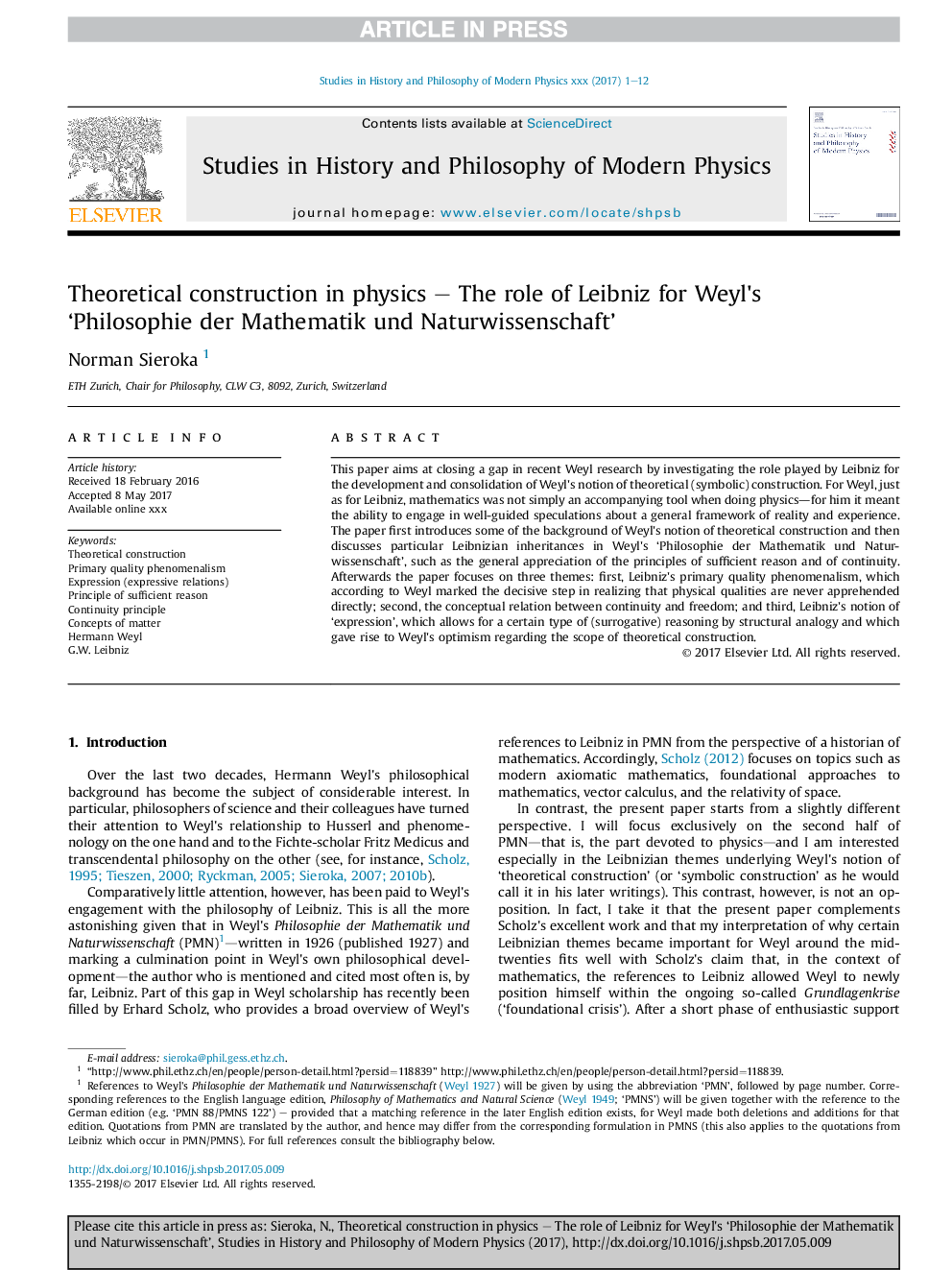| Article ID | Journal | Published Year | Pages | File Type |
|---|---|---|---|---|
| 7551867 | Studies in History and Philosophy of Science Part B: Studies in History and Philosophy of Modern Physics | 2018 | 12 Pages |
Abstract
This paper aims at closing a gap in recent Weyl research by investigating the role played by Leibniz for the development and consolidation of Weyl's notion of theoretical (symbolic) construction. For Weyl, just as for Leibniz, mathematics was not simply an accompanying tool when doing physics-for him it meant the ability to engage in well-guided speculations about a general framework of reality and experience. The paper first introduces some of the background of Weyl's notion of theoretical construction and then discusses particular Leibnizian inheritances in Weyl's 'Philosophie der Mathematik und Naturwissenschaft', such as the general appreciation of the principles of sufficient reason and of continuity. Afterwards the paper focuses on three themes: first, Leibniz's primary quality phenomenalism, which according to Weyl marked the decisive step in realizing that physical qualities are never apprehended directly; second, the conceptual relation between continuity and freedom; and third, Leibniz's notion of 'expression', which allows for a certain type of (surrogative) reasoning by structural analogy and which gave rise to Weyl's optimism regarding the scope of theoretical construction.
Keywords
Related Topics
Physical Sciences and Engineering
Physics and Astronomy
Physics and Astronomy (General)
Authors
Norman Sieroka,
